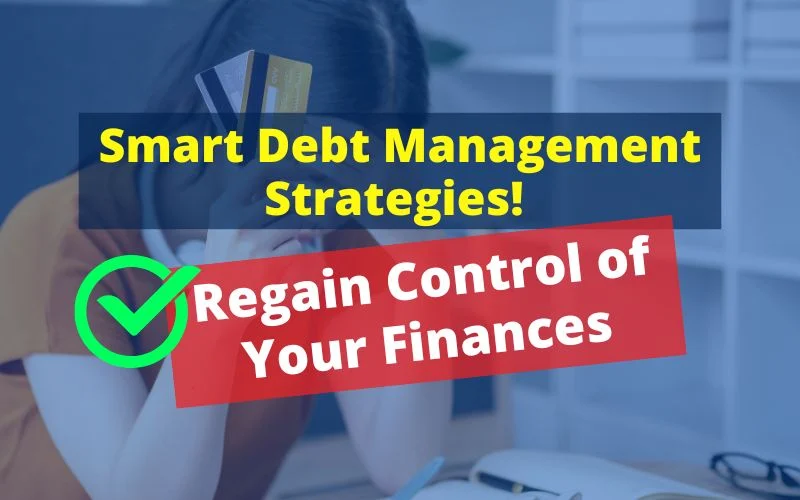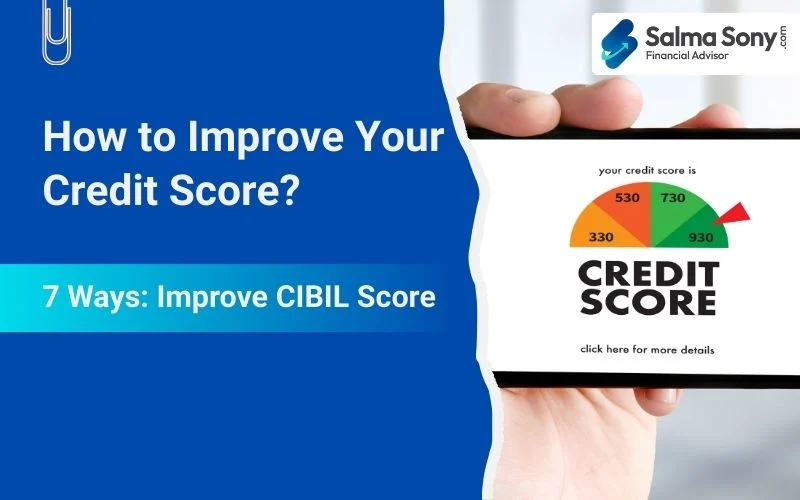Debt- A negative stigma that brings stress and anxiety. But most people miss something: debt doesn’t have to be the enemy.
In fact, when managed well, you can become debt-free faster than you can imagine and prioritize focusing on achieving your personal financial goals like child education, retirement, etc. faster. The key? Debt management strategies: Where you manage loans wisely and can invest for your goals.
We hear about the dangers of debt – the suffocating interest rates and the never-ending payments – but you can get rid of it faster when planned well.
As a financial adviser, I always say debt is not always bad. What matters is how you manage it. With comprehensive financial planning, which also focuses on debt management strategies, you can turn around a situation that seems like a financial burden into financial peace of mind.

Key Takeaways:
- Some of the best ways to deal with debt include debt consolidation, the debt avalanche method, and the debt snowball strategy, particularly if you have high-interest credit card balances.
- Regardless of the approach you select, monitoring your credit to see how your efforts affect your credit score is essential.
- If you must choose between paying off low-interest debt and creating an emergency fund, prioritize the latter for future flexibility.
In this article, we will learn seven tips to help manage debt and stay on top of your finances in 2025.
7 Effective Debt Management Strategies to Prioritize in 2025
1. Make and Stick to a Budget
Your budget is the foundation of any debt management strategy. It’s a tool that helps you allocate your resources wisely so a portion of your income goes to debt repayment.
The 50-30-20 budgeting rule, which allocates 20% of your resources to pay down debt, is one of them.
A budget helps you to plan debt payoff. The hard part is sticking to your budget. It requires expense management and financial discipline.
Do you wonder what a balanced budget can do for you? Here’s what:
- Identifies and measures your financial assets.
- A budget prioritizes debt repayment consistently.
- It gives you insights into your spending habits.
- It prevents you from taking on more debts.
- It helps you monitor your debt management progress.
2. Manage and Improve Your Cash Flow
Even if you are profitable, poor cash flow management can lead to big problems like converting credit cards due to EMIs missing payment due dates. Thinking about how to manage debt responsibly that increases cash flow?
I got you. Here are a few:
- Forecasting – Want to prepare for upcoming expenses? Forecasting is the answer. Analyze and project your cash needs to prepare for upcoming expenses.
- Control Expenses – Say no to unnecessary spending. Regular reviews and cutting down on non-essential expenses are necessary to achieve your financial goals.
- Keep Cash Reserves – Have cash/ emergency funds to cover unexpected expenses without taking more loans.
3. Review and Prioritize Your Debts
Not all debts are created equal. Debts like student loans or mortgages have low interest rates, while others like credit card debt have higher interest rates.
Review your outstanding balances regularly, and rank the repayment according to interest rates and payment terms.
Pay attention to-
- High-Interest Debt: You can save money in the long run by paying off high-interest loans first.
- Liabilities with Serious Penalties: To avoid extra expenses, deal with debts that have strict terms or have legal action.
Related: How to Reduce Loan Burden: 5 Smart Steps to Reduce or Repay Home/ Personal Loan
4. Refinance or Consolidate Debt
Got multiple types of debt? Refinancing or debt consolidation can help you simplify repayments and lower your monthly payment.
To do that, you must:
- Lower Interest Rate: Use loans with lower interest rates to refinance high-interest debt.
- Payment Terms: Make sure the repayment terms align with your financial situation and goals for manageable monthly payments; this simplifies payments and often reduces interest rates, so you save in the long run and overall financial health. Example: Ensure you negotiate no penalty on loan prepayment.
5. Increase Income
Increasing your income is a proactive way to tackle debt faster. Multiple income streams allow you to allocate more to debt repayment and reduce financial stress.
Increasing income makes it easier to manage and pay off debt faster. Think about these:
Income and Offerings: Don’t put all your eggs in one basket! Introduce new products or services that will attract more clients and more money.
Related: 4 Money Management Tips For Beginners: Salaried & Business Professionals
Being a salaried employee, you may also take up freelancing work that increases your financial stability.
Pro Tip: Research and diversify your investments according to your risk tolerance and financial goals.
6. Review and Update Your Debt Management Plan
Debt management is an ongoing process. Review and update your repayment plan regularly to account for changes in your business scenario.
Monthly Reviews: Review your financials and debt situation every month.
Adjust Strategies: Be prepared to change your debt repayment plans as your salary or business grows.
Stay Informed: Stay updated on financial news and trends that may affect lending rules, interest rates, and the economy.
7. Consult a Professional
Sometimes, managing debt requires expert help. A financial advisor knows your financial situation, manages debt, and provides top-notch financial planning.
Here are a few things a financial advisor can help you with:
- Create a customized debt management plan.
- Identify opportunities to consolidate or refinance debt.
- Ensure your financial decisions align with your short-term and long-term goals.
Professional advice ensures your strategies are practical and effective.
Bottom Line – Managing Debt Effectively for Long-term Goals
Debt management is not just about reducing liabilities – it’s about using your resources to build a stable financial future. By budgeting and strategic repayment, you can turn debt into a part of your financial plan.
You can manage your finances independently or with a SEBI-Registered Certified Financial Planner. A professional can help you streamline the debt management process so your financial strategies align with your goals. With their expertise, you can fast-track your journey and turn your financial dreams into reality.
Also Read: A Good Financial Plan Can Make Your Money Dreams Come True! Let’s Plan 2025
Start 2025 with a debt management plan and watch your finances transform into balance, growth, and stability.
Frequently Asked Questions
Q-1: How can debt management strategies help you eliminate debt faster?
Budgeting, prioritizing prepayment of high-interest debt, and consolidating loans are all effective debt management strategies that allow you to allocate resources efficiently while saving on interest payments to the bank. Methods such as Debt Avalanche and Debt Snowball streamline repayment, keeping you focused and motivated to pay off debt faster.
Q-2: What is the Debt Avalanche method, and how does it work?
The Debt Avalanche method prioritizes paying off debts with the highest interest rates first while making minimum monthly debt payments on others. By reducing high-interest expenses, you save money in the long term and eliminate debt faster.
Q-3: How does the Debt Snowball strategy motivate you to pay off debt faster?
The Debt Snowball strategy prioritizes paying off small debts first while making minimum payments on large debts. Quickly paying off smaller debts gives you a psychological boost that encourages you to continue making your monthly debt payments on time and strive for debt freedom.
Q-4: Why is building savings important while repaying debt?
Managing debt can ensure financial stability for unforeseen costs, so maintaining an emergency fund or savings can be helpful. It ensures one is on the right track of becoming debt-free and helps prevent a person from engaging in new debts.





